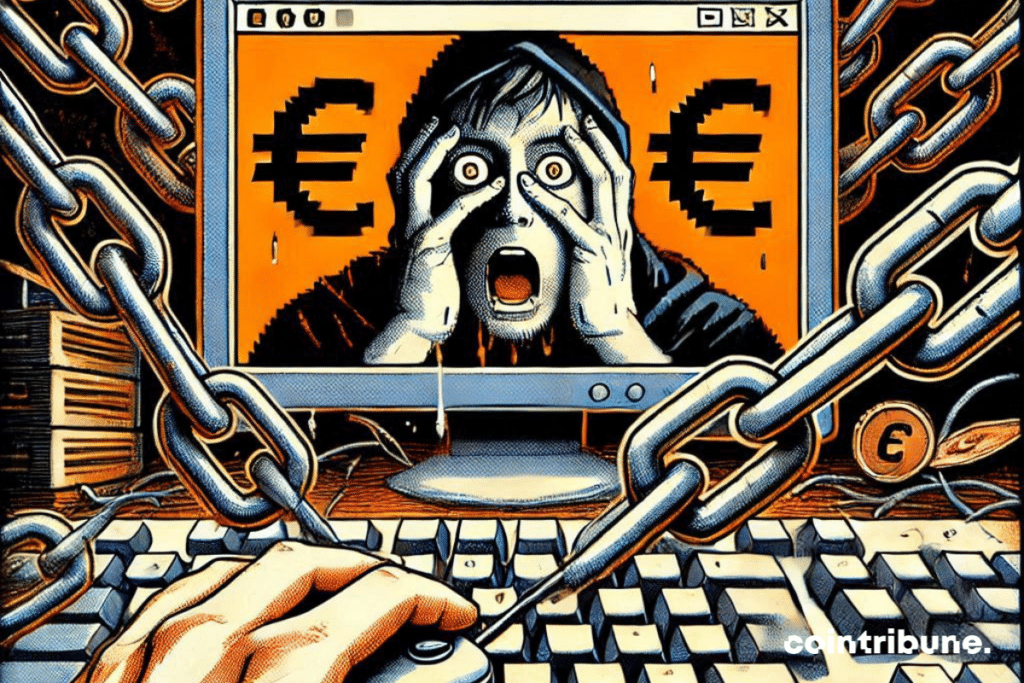Crypto Scams: 5,000 Entities Banned in France, But Crooks Are Still Innovating
0
0
The crypto universe, fascinating for some, is a real minefield where every step can be fatal. In France, financial scams are thriving, attracting a growing number of victims thanks to increasingly sophisticated techniques. Among these traps, cryptocurrency-related scams are costly, and authorities are making greater efforts to stop the hemorrhage.

Crypto scams, a scourge with frightening numbers
In 2024, crypto scams reached new heights in France, causing annual losses estimated at half a billion euros. Among these frauds, those related to crypto investments stand out for their alarming inventiveness:
- 3.2% of French people are victims of scams, compared to 1.2% in 2021;
- An average of €19,000 lost due to fictitious loans;
- Up to €69,000 vanished in fraudulent savings accounts.
Scammers, in chameleon mode, impersonate authorities or celebrities, using AI to lend credibility to their stories. A glaring example is the “OmegaPro” fraud, where investigators recovered €268 million in criminal assets.
“Promises of extravagant returns should always raise a red flag,” reminds the AMF, which is issuing more warnings to alert the public.
Regulators and battles against crypto illusion
Faced with this avalanche of scams, French regulators are responding with determination. Since 2022, 5,000 unauthorized entities have been blacklisted, and 350 fraudulent sites have been blocked. A national information campaign has also been launched to educate investors about the risks.
The strategies of scammers, such as calls from fake advisors or so-called “square” frauds – where initial victims are contacted again under the pretext of recovering funds – demonstrate criminal ingenuity.
Regulators invite individuals to check official registers and never give in to promises of easy wealth. Because, as the saying goes: “If it sounds too good to be true, it probably is.“
In sum, crypto enthusiasts are particularly vulnerable to these digital mirages: 76% of assets promoted by crypto influencers turn out to be scams. Vigilance and caution remain the best defenses against this epidemic of fraud.
0
0
 Manage all your crypto, NFT and DeFi from one place
Manage all your crypto, NFT and DeFi from one placeSecurely connect the portfolio you’re using to start.






